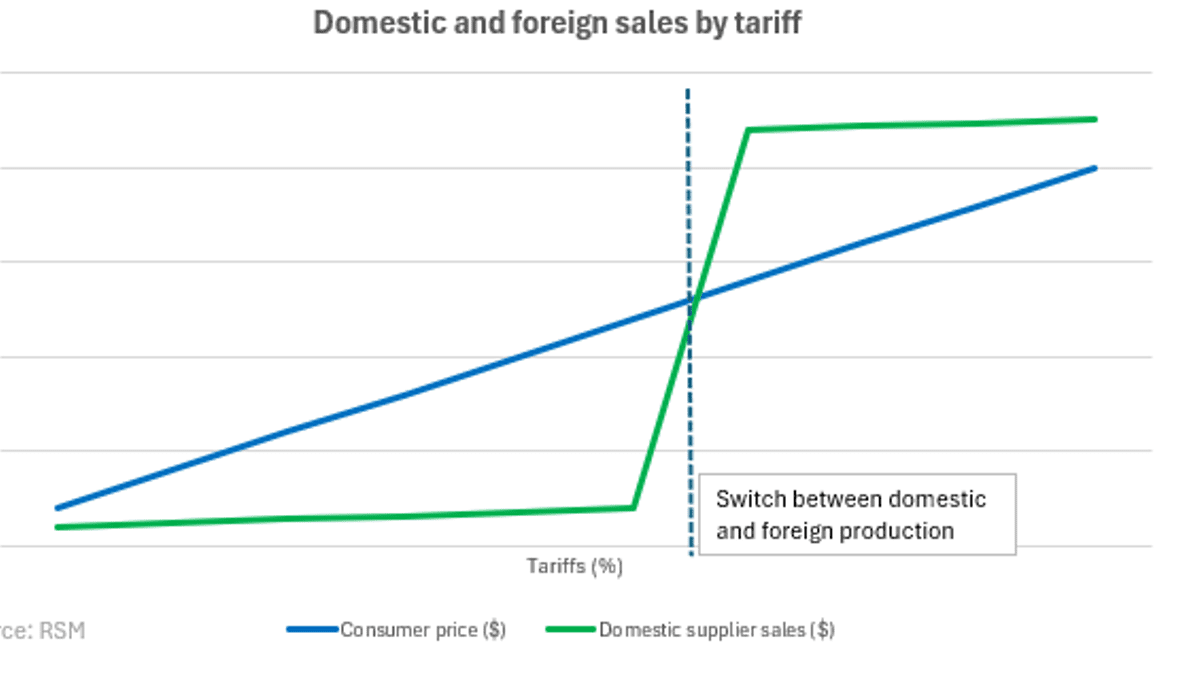
Real estate has been a popular investment option for some time. Today, John Geraci, CPA, MST and Jim Dowd, CPA discuss tax considerations for real estate investors, along with potential tax benefits, common mistakes and misconceptions we see when working with clients.
Working with a professional can help you manage the tax burden and make the most of your investment.
[John]: Hi, this is John Geraci managing partner of LGA. And today I’m here with Jim Dowd who’s going to speak to us today about some of the tax considerations of investing in real estate. So thanks for joining me today, Jim. Thank you, John. So I guess for starters, you know, a lot of people like the idea of investing in real estate and they’ve heard of all these great tax advantages of doing so. Can you speak to what they’re referring to?
[Jim]: Well, John, when you think about real estate has the immediate opportunity to help people grow wealth because there’s a ready market for you to leverage your money. Unlike starting your own business or more risky opportunities, banks are readily available to lend 80% of the purchase price of the real estate asset. Therefore if you have $200,000 in cash, you could acquire a property worth a million dollars.
[John]: Yeah, that’s, that’s pretty, that’s pretty staggering, I guess. So, so on the tax side, what’s, what’s the benefit of doing so? I mean, is it, isn’t it just going to generate rental income and you’re gonna end up, you’re going to pay taxes on that?
[Jim]: Well, one of the advantage of real estate, as opposed to stocks and bonds is that the investment is available for purposes of depreciation. Even though the value of the property is going to go up, the IRS allows you to deduct the cost of the property over your holding period. So if you were to acquire that property for a million dollars, the IRS allows you to take a non-cash expense of $36,000 a year for depreciation. Therefore, if you’ve got a property that’s generating $50,000 of cashflow, you’re only going to pay taxes on $14,000 of income because that non-cash expensive depreciation helps to reduce the level of taxable income.
[John]: That’s that’s interesting. And you say 14,000, but you know, most, most taxpayers are going to probably have borrowed some amount of money. So they have interest expense and there’s probably some real estate taxes. So yeah, I think a lot of times you find that even though you have that at the size of Alaska, that is generating an income stream, by the time you reduce it, by that non-cash depreciation, you describe plus the interest in real estate taxes, there’s just nothing left to tax. So that’s one tax favorite element of, of investing in real estate. What about the appreciation side? Are people paying taxes as the asset appreciates?
[Jim]: No, that’s another one of the great advantages of real estate is that generally real estate is going to appreciate. And as that appreciation takes place, you’re not taxed on that additional wealth. So if you’re holding a property worth a million dollars and it’s going up by 6%, you’ve got a increase in your wealth of $60,000. That’s not taxed on a contemporaneous basis. So in essence, it’s building up your wealth without incurring a tax liability
[John]: And everybody loves tax deferred investment gains. So that’s, that’s really, that’s really a great opportunity. So one of the things that I’ve seen people trip up on here though, is, is that concept that appreciation and a lot of investors will go out and they’ll refinance a property as it appreciates and put the money somewhere else. And that tends to get them in trouble a little bit when it comes to the psychology of how they view their taxable gain on that property. No?
[Jim]: Yeah. Some clients have the mistaken belief that the amount of indebtedness on the property factors into the calculation of their game, we’ve clicked clients that have owned property literally for decades and the may have paid $50,000. It’s now worth $2 million, but over the 30 years of holding it, they’ve gone back and they’ve mortgage that property that’s money that they’ve made available to themselves for lifestyle and other needs, but they haven’t paid taxes on that additional borrowing. They’ve used it to fund education, vacation homes or whatever. So when they go to sell the property, they’re shocked to find out that the gain is the difference between the selling price, 2 million in their original purchase price of $50,000. When they go to payback the bank, they may end up after having to pay the tax on the gain and the mortgage indebtedness that $2 million is made is no money available to the seller. All of it’s going to pay debt or taxes.
[John]: Yeah. And that, that definitely creates confusion. I’ve had many situations where clients have leveraged the appreciation, the, the untaxed unrealized appreciation in real estate to invest in other properties, not realizing that, you know, when they sell that property, they’re still going to have to pay a gain on a much larger amount, even though their cash doesn’t match that. So there’s a, there is always confusion around sort of the matching of cash to gain. So, um, great information. Obviously there’s a lot of complexities that are sort of interwoven in there. Um, but any final thoughts as it relates to investing in real estate and some of the tax considerations.
[Jim]: Well picking up on your word, final thoughts in many ways, if you’re holding real estate, you would almost prefer to have that asset go through your estate when, uh, appreciated asset like real estate is part of an estate. The recipient gets what’s termed a step-up in basis. So if you’ve owned property that you paid $200,000 for, and it’s now worth a million, it goes to your state at a million dollars, but your children get to sell that for a million dollars and pay no capital gains tax. So if the overall assets that you’re holding in your portfolio, highly appreciated assets, like real estate, may be the asset of choice to have left in the estate.
[John]: Great, great advice, Jim. I really appreciate that. Yeah. Again, there is, there is so much around subject, uh, and there’s, like I said, there’s a lot of intricacies and understanding sort of the pros and cons and some of the benefits and consequences of these refinances and remortgages that you described. So, um, I want you to know we’re always here to help. If we can help guide you through any of your contemplated real estate transactions or understand the taxation basis, depreciation, please reach out to us anytime we would be happy to talk that through with you. Thanks so much for, uh, giving us some advice today, Jim.
[Jim]: Thank you, John.
by Jim Dowd, CPA





